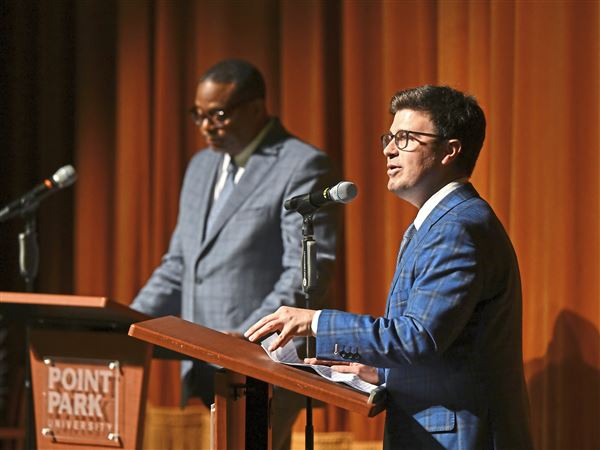Many a gardener is familiar with the seedling sale held each year by the North Area Environmental Council. But many may not know that the council does more than sell seedlings.
For 36 years, it has provided environmental education, assisted with environmental studies and projects, and, of course, sold native seedlings.
"We started in 1969 when a group of us attended a program, Our Perishable Planet, that addressed the environmental situation," said Marion Crossman, council secretary.
Some of those in the group thought there should be an organization dedicated to environmental issues in the northern suburbs, so they formed the council, said Mrs. Crossman, of Ross.
Today, the council has about 250 members from all walks of life and ages ranging from high school through octogenarians.
"A bunch of the originators are still involved," Mrs. Crossman said. Her husband, Dave, is an active member.
Since those early days, the council has been dedicated to environmental education, and that can take many forms, said Bill Moul, council president.
"We look at education in a broad sense. That doesn't mean we only work with grade school students, although we have done many programs with students," he said. "It means we work with the population as a whole."
For example, the council provided a location for collection of recyclable materials decades before the state mandated curb side recycling, Mrs. Crossman said.
"People who believe in a basic conservation ethic have been the backbone of the group," she said.
The council encompasses all of the northern communities in Allegheny County. One of its focal points is the Pine Creek Watershed. "It is 67 square miles. It is the biggest watershed completely contained in Allegheny County," said Mr. Moul, who lives in Marshall, which contains part of the watershed along with Hampton, Shaler, Etna, Ross, McCandless, Sharpsburg and Pine.
The council is a member of the Pine Creek Watershed Coalition. and is involved in several studies of the watershed. Late last year, it received a $19,500 grant from the state Department of Environmental Protection, which, coupled with a $5,000 equipment donation from the Allegheny County Conservation District and a $500 donation from Trout Unlimited, is being used for a watershed assessment.
"We have 60 to 70 volunteers involved in the assessment. I would say about 400 areas are being assessed in this process," Mr. Moul said.
The council has received grants in the past to study the watershed.
"We have a group of interested and interesting volunteers who make everything possible," he said.
In part because of the enthusiastic volunteer base, the Pine Creek Watershed Coalition was selected by the DEP to serve as a pilot project using volunteer monitors to gather data for projects to monitor bacteria.
"They looked at our volunteers and said, 'If Pine Creek is willing to do it, this is the place that we want,' " Mr. Moul said.
In a yearlong study, volunteers will monitor six or seven sites once a week.
"Hopefully, out of this project, a protocol will be developed for other volunteer programs to assist in this important process," Mr. Moul said.
The council also provides scholarships for high school students to attend conservation programs.
This year's seedling sale continues through March 22.
"Many people want to buy trees that are native to our area but can't find them in the local nurseries. This is a great way for people trying to assist with soil conservation and eroding issues plus replanting in newly developed neighborhoods," she said.
Planting native trees is good for the environment, she said.
"They hold the soil and prevent erosion. And they are good for the local wildlife, providing food and shelter to the animals and birds."
For more information on the sale, contact Mrs. Crossman at 412-366-3339 or dmc@pitt.edu. For more information about North Area Environmental Council, call Mary Wilson at 412-364-7006.
First Published: March 8, 2007, 5:00 a.m.














